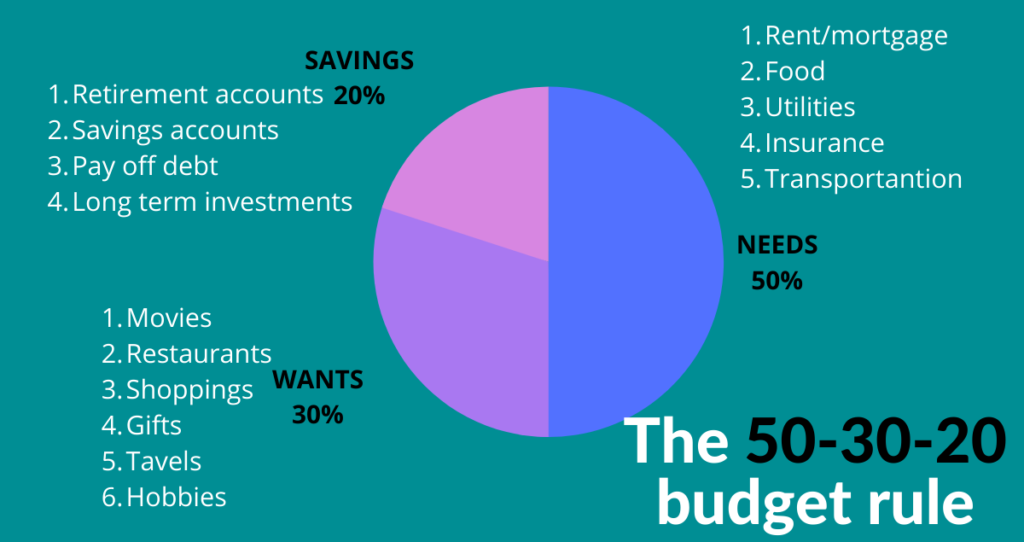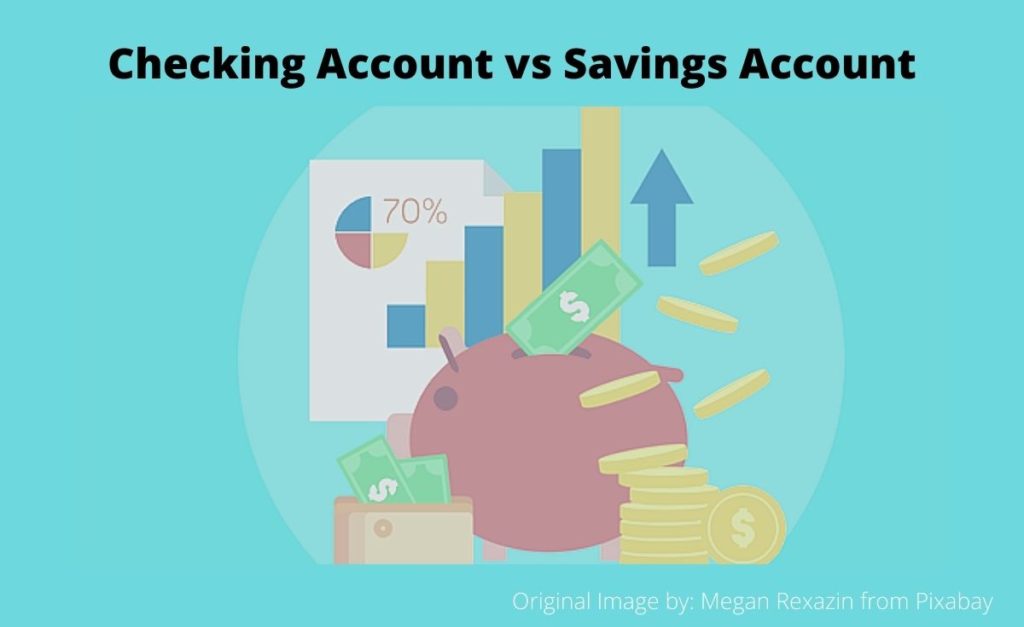College life is often considered the best time of one’s life. It is a phase where you make lasting friendships, gain new experiences, and acquire knowledge to shape your future. However, the one aspect of college life that can put a damper on this experience is the cost of college. College is expensive, and as a student, you’re probably looking for ways to save money while in college. Luckily, there are a lot of ways to cut down college-related costs and save money without sacrificing your lifestyle. In this article, we will discuss the top 23 best money-saving tips for college students to live frugally, save money, and still have a great college experience.
What makes saving money in college work?
Saving money in college requires that you prioritize your needs over your wants. It is also critical to take advantage of the things you qualify for such as student discounts, and free services that come with your program, and avoid costly financial mistakes while attending school.
These money-saving tips for college students are so effective that if you follow them by the book, you will see a great change in your finances in no time. You can also implement some of these money-saving tips for college students at the same time. For example, you can buy used books, work in the cafeteria to get free food, use campus amenities, and take advantage of all student discounts offered on campus and off campus. Additionally, you can get a roommate to split the rent, bike to school to save money on gas and parking (which I did) and cook your food instead of eating out at the same time.
Without further ado, the following are the top 23 money-saving tips for college students you can start implementing today.
1. Buy Used Textbooks
Textbooks are some of the most expensive items most students purchases. That is why buying used books is one of the most effective money-saving tips for college students. Textbooks can be incredibly expensive, and buying new ones every semester can add up quickly. Depending on your major, textbooks alone can cost you thousands of dollars every semester.
However, there are many ways to find used textbooks that can save you a significant amount of money. One option is to look for used textbooks online on websites like Amazon, Chegg, and eBay. You may also be able to find used textbooks at your campus bookstore or through Facebook groups or other online marketplaces.
Sharing textbooks is also one of the most effective tips for college students to save money. If you have a friend in the same class or major, you can split the cost of a textbook and share it throughout the semester. This not only saves money but also allows you to build relationships with your classmates.
Related: How to save money on books? 10 tips you can use
2. Take Advantage of Student Discounts
Students are known to have a lot of financial stress around the world. This is because students spend more money than they earn and most students rely on student loans. The good news is that many businesses are aware of money scarcity among students. That is why many businesses have various discounts that support students.
As a college student, you can easily take advantage of one of the best money-saving tips available around you with is shopping for items at discounts. That is right. Instead of randomly buying items you come across, do your research and purchase items at discounts.
Many retailers offer discounts to students that can help them save money on everything from clothing, and entertainment, to food. Always remember to ask about student discounts and carry your student ID with you to take advantage of these great deals. This extra money can fund other necessary expenses or even fun activities with friends.
3. Cook Your Meals
If you are on a quest to save money in college, then making your meal is something to look into. Yes, it can be difficult to do all the schoolwork and cook at the same time. But, if you can manage to make meals by yourself instead of eating out, you can easily save hundreds of dollars every semester. Eating out can quickly add up when you’re a college student on a tight budget. For this reason, one of the best ways to save money on food is to cook your meals. Not only is it cheaper, but it’s also healthier and can be a fun way to bond with roommates or friends.
Start with meal planning and making a grocery list before going to the store. Stick to simple recipes that are easy to make and require few ingredients. Look for deals and discounts on items in the store or even try shopping at a discount grocery store for even more savings.
Consider meal prepping for the week, which can save time and money in the long run. An effective strategy to save money in college with meal prepping is to make large portions of meals and store them in the fridge or freezer to eat throughout the week.
If you live in a dorm without access to a full kitchen, invest in kitchen appliances such as a microwave, toaster oven, or hot plate. These items can help you whip up quick and easy meals in your room.
Cooking your meals is not only a great money-saving tip for college students, but is also a valuable life skill that will serve you well beyond college.
4. Use Public Transportation or Bike
Cutting down on transportation costs can also make a big impact on a college student’s budget. Why is this smart move considered to be one of the best ways to save money in college? Because you will not pay for all expenses related to transportation. That is using public transportation or biking to class can save money on gas, parking, auto insurance, and car maintenance.
Most colleges have buses designed to transport students from dorms to classes. Other universities offer discounts and pass for students. So, to save money while in school, check with your school to see if they offer any transportation discounts or passes for students. Many cities also have discounted rates for students on public transportation.
Investing in a bike can also save money in the long run and provide a form of exercise as well. Look for deals on used bikes or consider renting one from a bike share program. You can easily find a used bike on Craigslist or Facebook Marketplace. You can also find students who are moving and selling their bikes at a discount.
Not only will using public transportation or a bike save you money in college, but it’s also a more environmentally friendly option. It’s a win-win for both your wallet and the planet.
5. Get a Roommate
Sharing a living space with someone else is a great way to save money while attending college. By splitting expenses like rent, utilities, and groceries with a roommate, you can significantly decrease your overall living costs. Not only does this option save you money, but it can also provide an opportunity to make new friends and build a sense of community.
Living with a roommate can also help you develop important life skills like communication, compromise, and respect for others’ space and belongings. Before committing to a roommate, make sure to discuss important details like lifestyle preferences, study habits, and any potential issues that may arise. For example, some roommates like to play loud music while others prefer quiet places. So, discuss these issues before you start living together.
While living with a roommate can be a cost-effective option, it’s important to set boundaries and establish expectations from the beginning to ensure a positive living experience. With the money saved on living expenses, you can allocate funds towards other expenses like textbooks or extracurricular activities.
6. Avoid Credit Card Debt
One of the most effective tips for college students to save money is to avoid credit card debt. To succeed at saving money while attending college it is important to avoid accumulating debt while in college. Credit card usage can be a slippery slope, and it’s crucial to only use them when necessary and pay them off in full each month. Taking on unnecessary debt can lead to a cycle of financial stress that can impact your entire college experience and after-school life.
What makes credit cards bad for students is that they come with higher APRs. In addition, credit cards do not help you achieve anything of value except spending money. As a college student, you don’t have enough savings to cover credit card balances after maxing out your credit cards. This can lead to the accumulation of credit card debt and financial hardship.
7. Find a Part-Time Job
You are probably wondering how getting a part-time job is a money-saving tip for college students. But, the truth is that before you start saving money in college, you first need to make it. That is right. If you can earn a few hundred dollars per week from a part-time job, your saving experience will be less stressful.
Not only can you make some money while attending college, but you can also gain valuable experience that will help you in your future career. Working a few hours a week may seem like a small commitment, but it’s a proactive step toward financial stability. With the right time management, you can juggle both studying and working without sacrificing academic success.
Finding a part-time job can sometimes be stressful. But, you don’t have to do it alone. Your college may offer job opportunities on campus or have resources you can use to find a job. Don’t be afraid to reach out to your professors or career services office for advice or guidance.
8. Consider Community College or Online Courses
The best tip for college students to save money is to attend cheap colleges. If you can manage to enroll in a less expensive college/university, then you will be on your way to saving way more money than you have imagined.
Attending a four-year college can be expensive, but there are alternatives worth considering. Community colleges offer a more affordable option for completing general education requirements before transferring to a four-year university. These courses can be just as rigorous and taught by experienced professors. Additionally, online courses provide flexibility and the ability to study at your own pace. Explore all of your options before committing to a more expensive route.
9. Choose Your Major Wisely
Choosing the right major is also crucial in managing your finances and saving money during college. While it may be tempting to pursue a major solely based on personal interests or societal pressures, it’s important to consider the financial implications of your decision. Certain majors, such as engineering or computer science, may have higher earning potential post-graduation compared to majors such as art or sociology. But, the tuition and fees for these majors are also higher than lower-cost majors due to extra fees for labs, experiments, expensive software, etc.
It’s important to do your research and understand the job market for your chosen major. Look into potential salaries, job availability, and long-term career prospects. Consider speaking with current professionals in that field or seeking advice from your school’s career center.
Choosing a major with a solid return on investment can not only make a difference in your current financial situation but also your future financial stability. But don’t let finances be the sole determining factor. Pursue a major that aligns with your interests and passions while keeping financial considerations in mind. At the end of the day, it will not make sense to graduate with a free that you don’t need or without the potential for a job offer. By choosing your major wisely, you can set yourself up for a more financially secure future.
10. Set a Budget and Stick to It
By choosing a major with a good ROI, you’re already putting yourself ahead financially. However, having a budget in place is crucial for making the most of your money during college. Start by setting up a budget that includes all of your necessary expenses like rent, groceries, and textbooks, and evaluate where you can cut back.
For example, consider purchasing generic brands instead of name brands or cooking meals at home instead of eating out. Stick to your budget by tracking your spending and finding ways to save daily. Simply put, saving money in college depends on how you effectively manage your expenses.
One way to avoid overspending is to refrain from making impulse purchases. Always think before you spend and ask yourself if the item or experience is truly necessary. Consider waiting 24 hours before purchasing to determine if it’s something you really need or if it’s just an impulsive decision.
11. Apply for scholarships
Another great way to save money while in college is by applying for scholarships. With a little bit of research and effort, you could potentially receive thousands of dollars toward your education without having to pay it back.
Scholarships can vary in criteria, from academic performance to community involvement, make sure to look for ones that fit your strengths and interests. By taking advantage of this money-saving opportunity, you can take on fewer student loans and make your college experience more affordable.
12. Get an assistantship
Another way to reduce your college expenses is by seeking out assistantships. Assistantships provide you with a part-time job on campus that can cover some of your costs, such as tuition, textbooks, or housing. Assistantships may be available in a variety of departments, including research, teaching, or administrative work. Not only will you save money, but you will also gain valuable experience that can enhance your resume and improve your post-college job prospects.
The most common assistantships to help you save money in college are research assistantships(RA) and teaching assistantships(TA). Keep in mind that these two usually require a higher GPA, especially in the course you will be teaching or researching. For example, if you apply for a TA or a tutoring position for Calculus II, you might be required to have an A in that class and have a higher GPA in related courses overall.
13. Use campus amenities
Saving money while in college require that you take advantage of free amenities and services included in your tuition and fees. Some of these services and amenities to take advantage of and save money while in college include but are not limited to a gym, pool, theatre, outdoor tracks, etc.
That is you need to consider utilizing the amenities offered by your college instead of paying for expensive gym memberships or extracurricular activities off-campus. Most colleges offer a wide range of fitness facilities, including gyms, swimming pools, and courts for various sports. Taking advantage of these resources can help you save money and improve your physical health.
Moreover, campuses often host events and clubs that cater to various interests, from book clubs to movie nights to volunteering opportunities. These activities are typically free or low-cost and provide you with opportunities to socialize and meet new people while pursuing your passions.
By making use of your campus resources and activities, you can save money and make the most of your college experience. And speaking of tips to save money in college, another way to cut down on expenses is by making your coffee instead of buying it at expensive coffee shops. More on this topic is covered in the next few paragraphs.
14. Make your coffee
Making your coffee is an efficient way of saving money in college while keeping yourself energized throughout the day. Instead of buying coffee from expensive coffee shops, invest in a good quality coffee maker, and brew your coffee. You can experiment with different types of coffee beans and flavors to find the one that suits your taste buds.
When I was in college, I bought my coffee maker in 2012 and started brewing my coffee. From that day on, I have never paid for coffee from any coffee shop and that saved me thousands of dollars in coffee alone. The fun part is that I still have the same coffee maker and I use it daily.
Moreover, apart from being cost-effective, making your coffee can also be a fun and relaxing activity. You can enjoy a warm cup of coffee while studying or catching up with friends in your dorm room.
Another benefit of brewing your coffee is that you can avoid the temptation of buying expensive snacks or treats that often accompany a trip to a coffee shop. Instead, you can pair your homemade coffee with a healthy snack from your dorm room stash or from the campus cafe.
15. Don’t buy groceries when you are hungry
We cannot talk about tips for college students to save money without touching groceries. One of the biggest expenses for college students is groceries. To save money, it’s important not to go grocery shopping when you’re hungry. This might seem like common sense, but it’s easy to forget when you’re rushing to fill an empty stomach. When you’re hungry, you’re more likely to buy unnecessary items and overspend on snacks and treats. By sticking to a grocery list and avoiding the store when you’re hungry, you can save money and make healthier choices.
Implementing this simple tip can help you save a significant amount of money over time. Pair it with other frugal living tips, such as brewing your coffee instead of going to a coffee shop, and you’ll be on your way to financial success as a college student.
16. Pay your bills on time to avoid charges
Another way to save money in college is to pay your bills on time. Late fees can quickly add up and become a significant burden on your finances. Also, you cannot be able to save money when your savings are being paid in charges that could have been avoided. By staying organized and keeping track of due dates, you can avoid these costly fees and put that money towards more important expenses, like tuition or textbooks.
17. Work in the cafeteria to get free food
If you’re committed to saving money as a college student, then you have to get creative with your approach. Working in the cafeteria is one such way that students can get free food and cut down on expenses. This may not be the most glamorous job, but it can pay dividends in terms of savings.
For example, when I was in graduate school, I was in the cafeteria as a student supervisor. Not only that I got paid for the job I was doing, but I also got to eat free food from the cafeteria. This allowed me to slash my grocery bill by more than 70% and save money.
Although free meals are a great perk, working in the cafeteria can also be a great way to meet new people, make new friends, and maybe even network with potential employers or professors. You can also learn new skills, such as how to operate large kitchen equipment, which could come in handy later in life.
18. Don’t buy an expensive cable package
Another great way to save money as a college student is by ditching expensive cable packages. Cable television can be quite pricey, and if you’re only using it to watch a few select shows, it may not be worth the investment. Instead, consider streaming shows online or sharing streaming accounts with friends. Netflix, Hulu, and Amazon Prime, for example, are all great options for streaming your favorite shows and movies, and they’re a fraction of the cost of cable.
If you use Amazon Prime, you will also benefit from streaming services that come with such an account. You also don’t need to sign-up for all streaming services out there. Since you are a student, Amazon Prime will be a great option as it comes with free streaming services for its members for certain shows.
19. Avoid expensive college meal plans
One of the best money-saving tips for college students is to avoid expensive college meal plans. While it may seem convenient to sign up for a college meal plan, these plans can be a major expense that eats into your budget.
Not only that, but they may not provide the healthiest food options for your diet. Instead of relying on meal plans, consider cooking your meals at home and buying groceries in bulk. With the money you save, you can purchase more nutritious foods and have greater control over your eating habits. Plus, by preparing your meals, you’ll avoid food waste and save even more money in the long run.
20. Don’t buy unnecessary school supplies
Avoiding purchasing unnecessary school supplies is one of the best money-saving tips for college students. It’s easy to get overwhelmed at the beginning of the semester with the long list of required materials, but it’s essential to take the time to evaluate which items are genuinely necessary. Rather than buying every textbook and notepad on the syllabus, take a moment to check if you already have some of the required materials. You might be pleasantly surprised at what you find.
Another smart way to save money on school supplies is to rent textbooks or purchase used ones instead of buying them new. This can help you save significant amounts of money throughout your college career. By being mindful of your supplies, you can cut down on unnecessary expenses and channel that extra money elsewhere.
21. Avoid expensive spring and summer break trips
Spring break and summer vacations can be an expense that sets you back a lot during your college period. Instead of going to expensive destinations, consider taking a road trip or staycation with friends. You can even volunteer or take an internship to gain valuable experience while also saving money.
By being creative with your vacation plans, you can save a lot of money and still have an enjoyable time. To lower the cost of your spring break and save money while in college, go as a group. This will allow you to save on hotels, travel, food, and related expenses. Some events also give you a lot of discounts when you book as a group.
One of the biggest expenses for college students is textbooks. However, there is a way to save money on your education without sacrificing your grades. To lower the cost of your textbooks, consider sharing textbooks with your classmates. This can cut down your costs significantly and also provide you with a study partner.
First, check with your professor to see if one textbook can be shared among a group of students. If so, organize a group of students in your class to split the cost of the book. You can take turns using the book and also collaborate on studying for tests and assignments.
If sharing a textbook is not an option, consider renting or buying used textbooks. Many college bookstores offer these options at a lower cost than buying new textbooks.
23. Get free furniture from students who are moving
One of the best money-saving tips for college students that I used myself is getting free furniture from other students. Students graduate every semester. Others move to other schools or simply downsize or upgrade. Under any of these circumstances, they throw away things they don’t need such as furniture, home decor, plates, cups, and electronics such as TVs, laptops, etc.
Your goal is to watch dumpsters and grab whatever you need the moment it is thrown away. Some people throw away good couches and mattresses simply because they cannot carry them. By using these tips, you can save thousands of dollars in college without sacrificing your lifestyle.
The bottom line
there are many money-saving tips for college students, from finding creative vacation plans to sharing textbooks with your classmates. By being mindful of your spending and taking advantage of cost-saving opportunities on campus and off campus, you can enjoy your college experience without breaking the bank. As you move forward in your academic and professional endeavors, keep in mind that every dollar saved now can make a significant impact on your future financial success.








